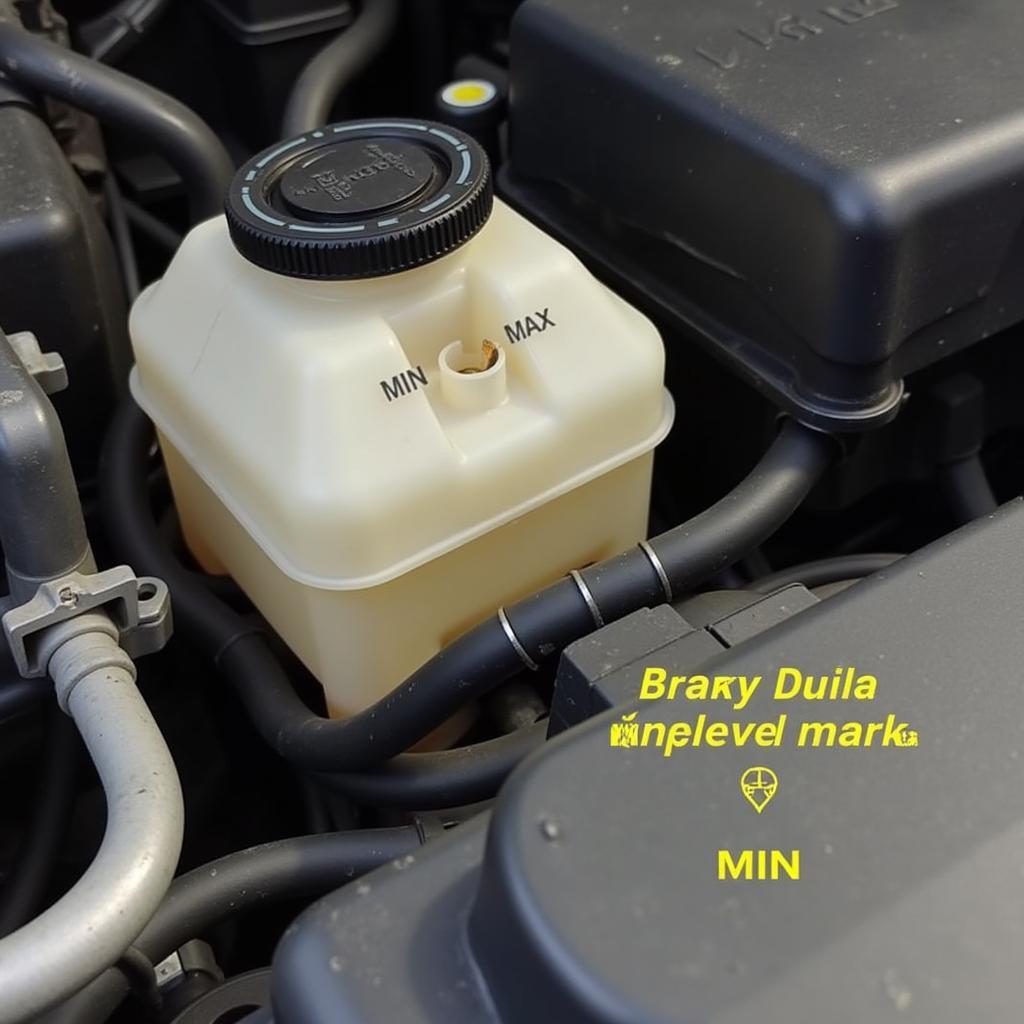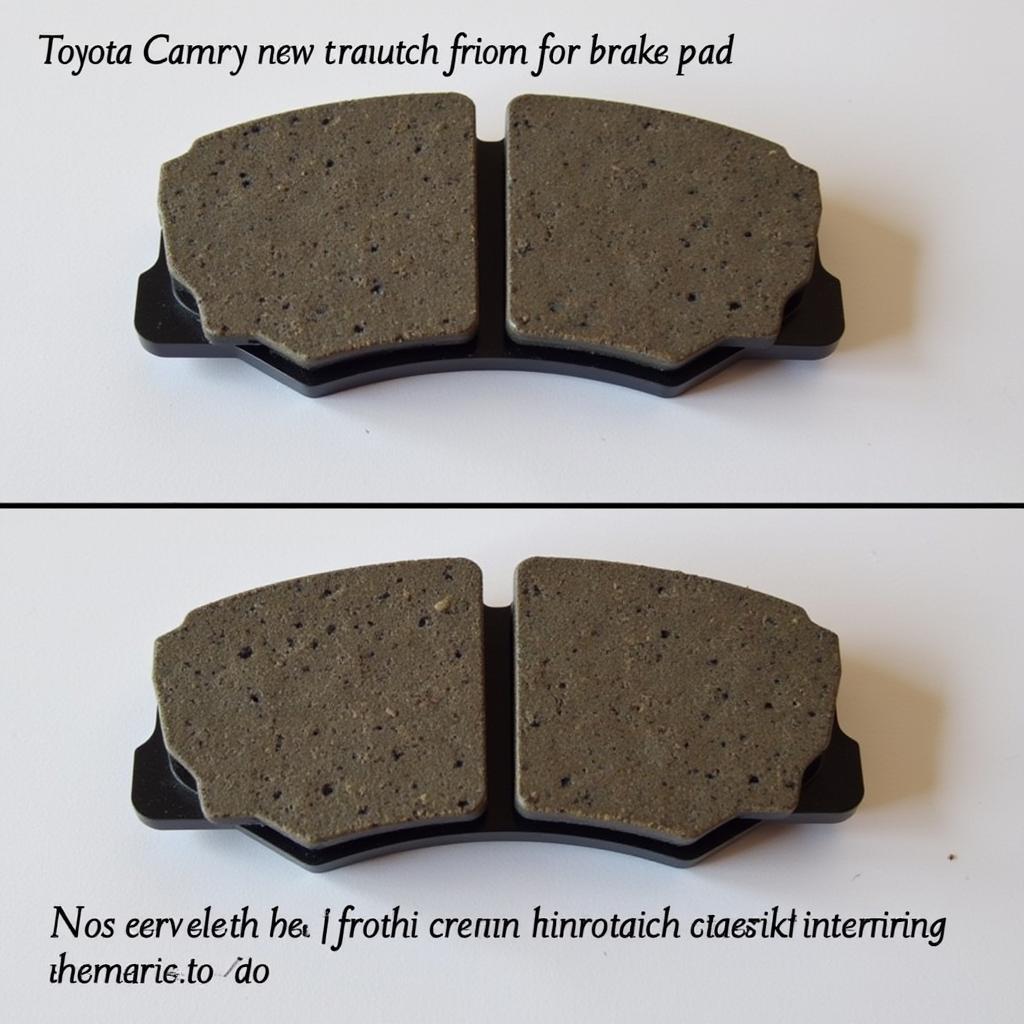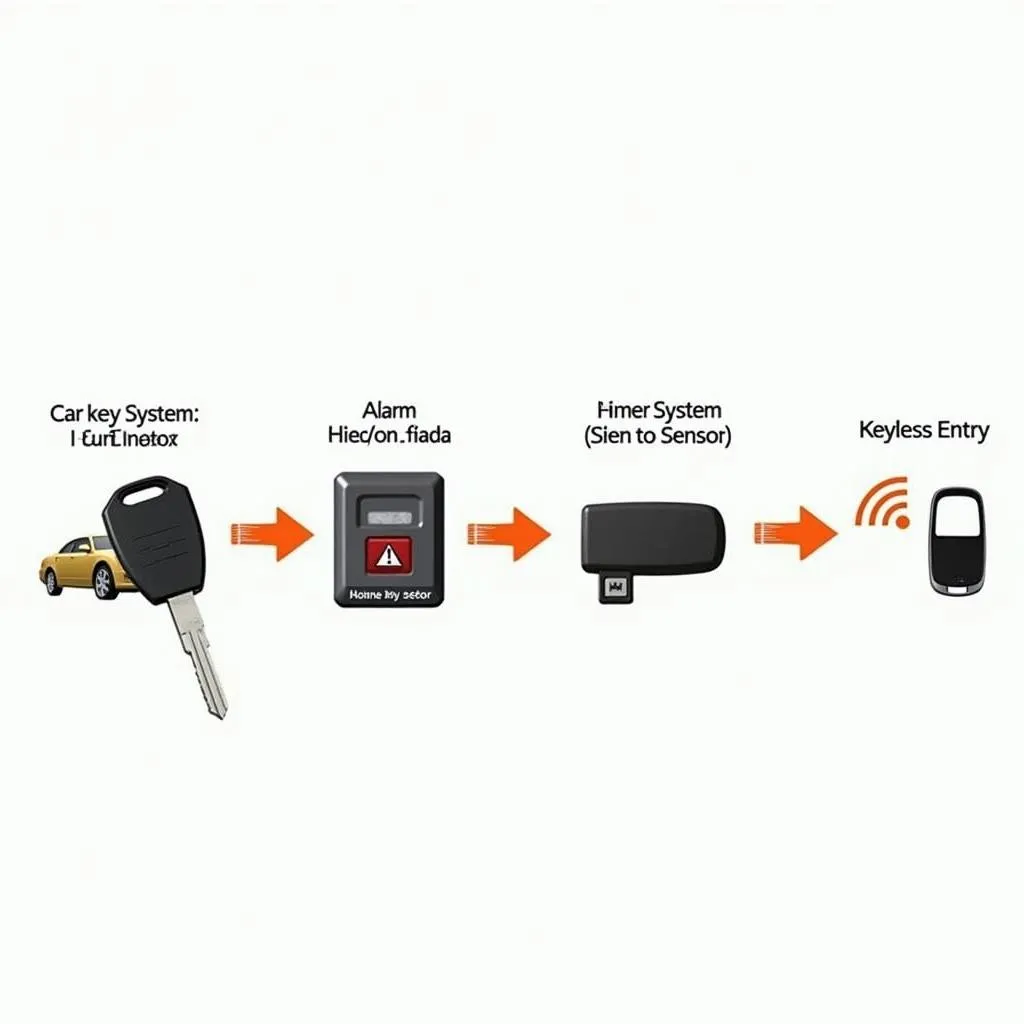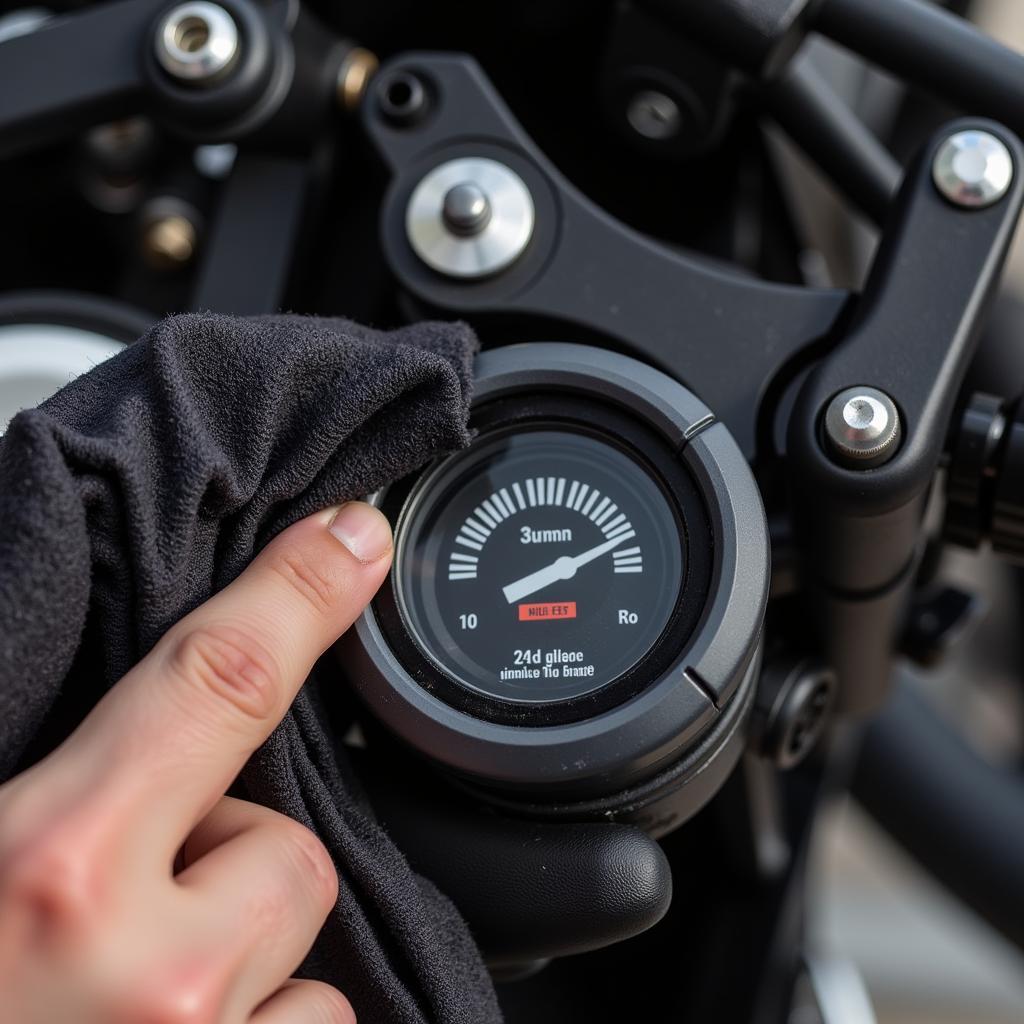The brake warning light on your 1997 Toyota Camry is a crucial safety feature, designed to illuminate if there’s an issue with your braking system. Ignoring it could lead to brake failure and dangerous driving conditions. This guide delves into the common reasons behind your 1997 Toyota Camry’s brake warning light illuminating and offers potential solutions.
Common Causes of a 1997 Toyota Camry Brake Warning Light
Several factors can trigger the brake warning light in your 1997 Camry. Let’s explore the most frequent culprits:
1. Low Brake Fluid Level
One of the primary reasons your brake warning light is on is low brake fluid. Brake fluid is the lifeblood of your braking system, transmitting the force from your foot on the pedal to the brake calipers, stopping your vehicle.
Solution: Park your Camry on a level surface and check the brake fluid level in the reservoir. If it’s below the “MIN” mark, carefully top it off with the appropriate DOT 3 or DOT 4 brake fluid (check your owner’s manual). If you’ve had to add brake fluid recently, there’s likely a leak that requires immediate attention from a qualified mechanic.
 1997 Toyota Camry Low Brake Fluid
1997 Toyota Camry Low Brake Fluid
2. Worn Brake Pads
Brake pads are designed to wear down over time. When they become too thin, a sensor embedded within the pad makes contact with the rotor, triggering the brake warning light. This system is crucial to remind you to replace your brake pads before they wear down completely, causing damage to the rotors and compromising your braking performance.
Solution: Inspect your brake pads. If they appear thinner than ¼ inch or if you hear a grinding noise when applying the brakes, it’s time for a replacement. Consider replacing all four brake pads simultaneously for optimal braking balance.
 Worn Brake Pads on a 1997 Toyota Camry
Worn Brake Pads on a 1997 Toyota Camry
3. Faulty Brake Caliper
The brake calipers house the pistons that push the brake pads against the rotors. If a caliper seizes (gets stuck), it can cause uneven brake pad wear, a pulling sensation when braking, and illuminate the warning light.
Solution: Check for signs of a seized caliper, such as a burning smell coming from the wheels, uneven brake pad wear, or difficulty stopping the car. Repairing or replacing a faulty caliper often requires specialized tools and expertise, so it’s advisable to consult a qualified mechanic.
4. ABS Issues
Your 1997 Toyota Camry is equipped with an Anti-lock Braking System (ABS). If the ABS module malfunctions or a wheel speed sensor fails, it can trigger the brake warning light.
Solution: If you suspect an ABS issue, it’s best to have your vehicle scanned for trouble codes by a mechanic with a professional-grade diagnostic tool. This will pinpoint the exact issue within the ABS system, allowing for targeted repairs.
Can I Still Drive with the Brake Warning Light On?
Driving with an illuminated brake warning light is never recommended. It signifies a potential issue with your braking system that could lead to reduced braking performance or even brake failure.
“Ignoring your brake warning light is like ignoring a flashing ‘check engine’ light on an airplane,” says veteran mechanic, John Riley. “It’s crucial to address the problem immediately to avoid potentially catastrophic consequences.”
Preventative Measures for Brake Health
- Regular Brake Inspections: Incorporate a visual brake inspection during your routine oil changes. Look for signs of wear and tear on the pads and check the brake fluid level.
- Timely Fluid Changes: Consult your owner’s manual for recommended brake fluid change intervals.
- Quality Parts: Always use high-quality brake pads and rotors when replacements are needed.
- Avoid Riding the Brakes: Minimize unnecessary braking, especially on long downhill drives. This reduces excessive heat buildup, which can lead to premature brake wear.
Conclusion
A glowing brake warning light in your 1997 Toyota Camry should never be disregarded. Addressing the root cause promptly ensures your safety and prevents further damage to your braking system. If you’re unsure about diagnosing or fixing the problem yourself, don’t hesitate to seek the expertise of a certified mechanic.
Remember, a little preventative maintenance goes a long way in keeping your brakes—and you—safe on the road.
FAQs
Q: Can a bad brake light bulb cause the brake warning light to come on?
A: While a bad brake light bulb won’t directly trigger the brake warning light, it’s essential to replace burnt-out bulbs immediately as they are crucial for signaling other drivers and preventing accidents.
Q: How much does it cost to fix a brake warning light issue in a 1997 Toyota Camry?
A: Repair costs vary greatly depending on the underlying cause. A simple brake fluid top-off might be inexpensive, while a brake caliper replacement can be significantly more costly. Always request a detailed quote from your mechanic before authorizing any repairs.
Q: Is it safe to drive my 1997 Toyota Camry if the brake warning light comes on intermittently?
A: Intermittent warning lights can indicate a developing issue. Have your braking system inspected by a qualified mechanic as soon as possible.
Q: Can I use any type of brake fluid in my 1997 Toyota Camry?
A: No, using the incorrect type of brake fluid can damage your braking system. Consult your owner’s manual or contact your Toyota dealership for the recommended brake fluid type for your specific model year.
Q: How often should I replace my brake pads?
A: Brake pad lifespan varies depending on driving habits and conditions. However, it’s generally recommended to have them inspected every 12,000 miles and replaced as needed.


